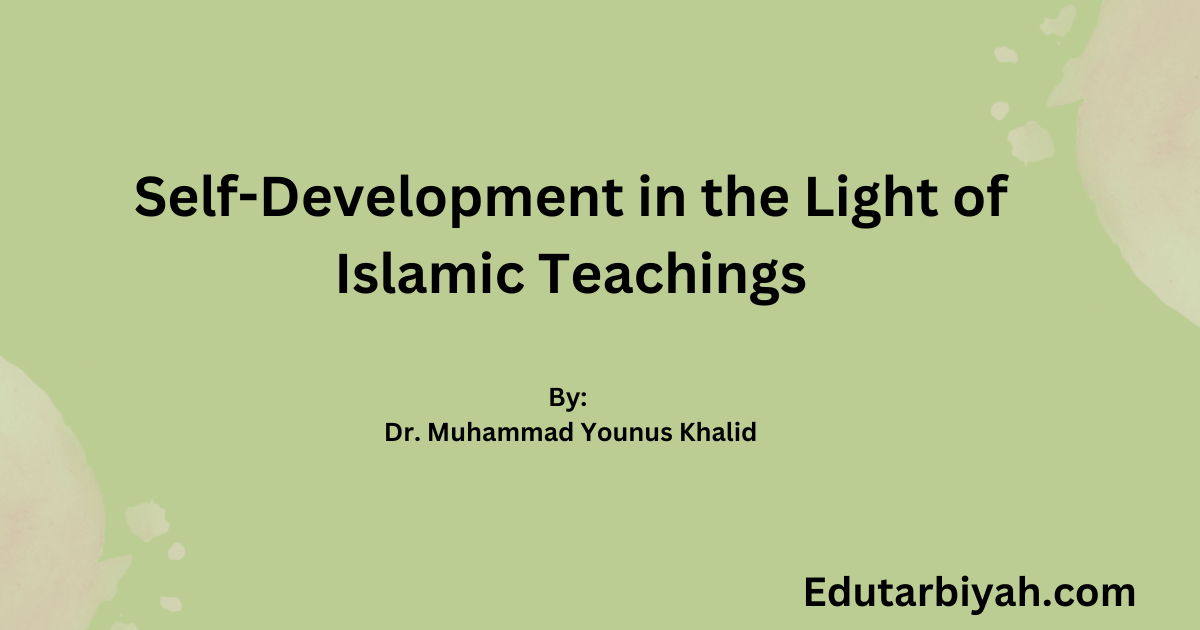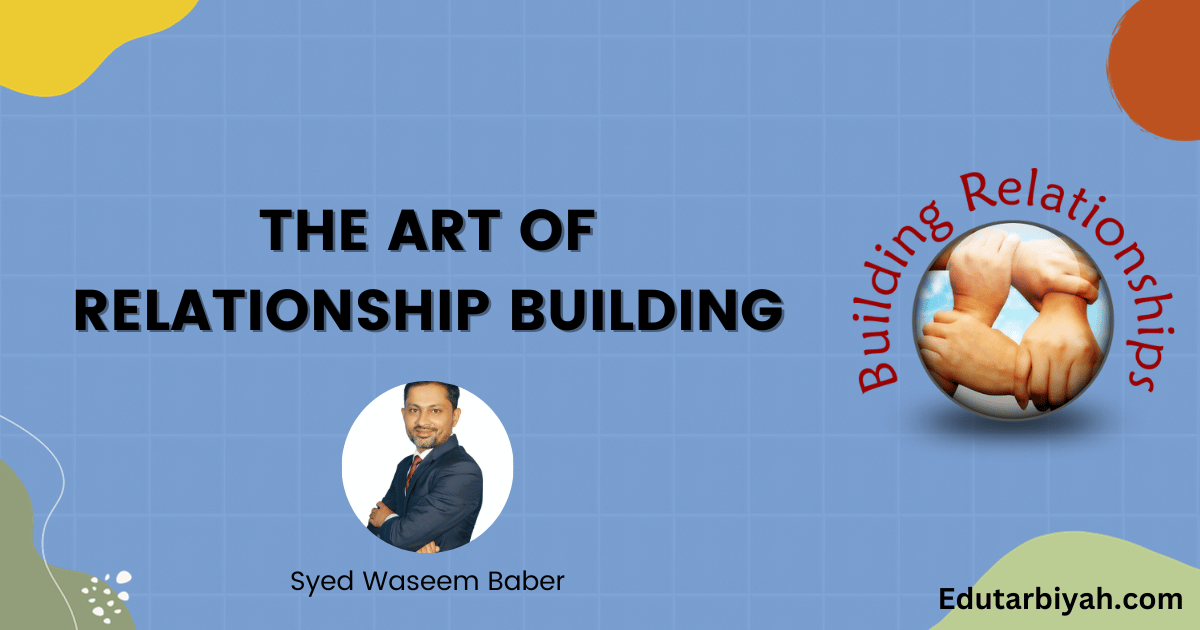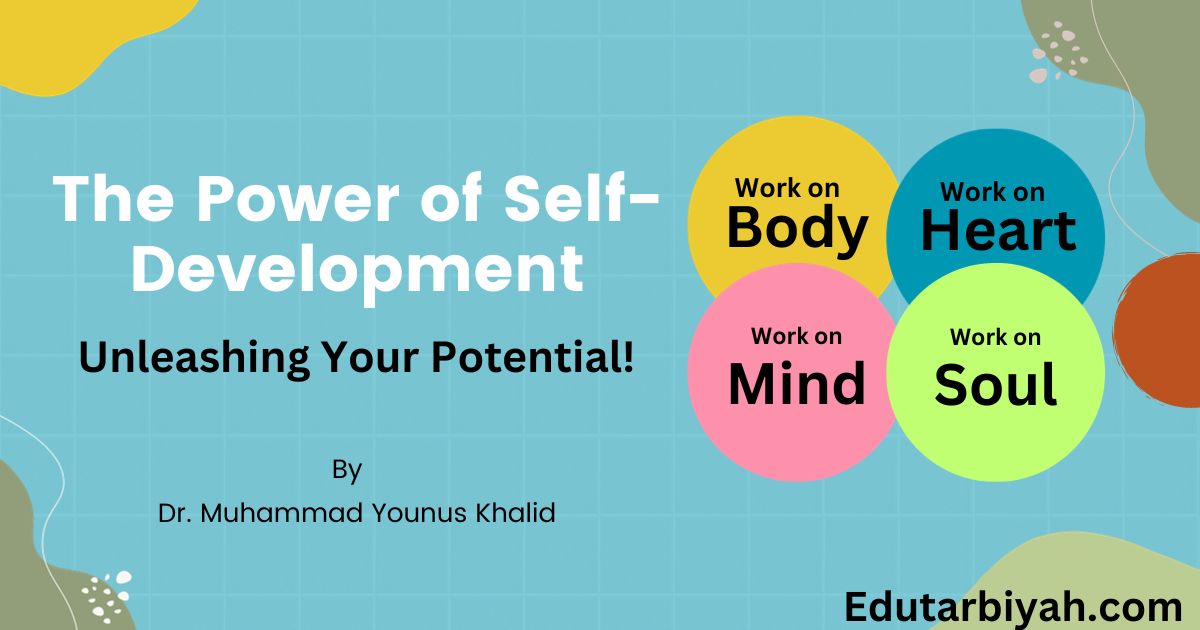Self-Development in Islamic perspective

Self-development is a universal concept, sought after by people from all walks of life, driven by the desire to become better individuals. In the realm of Islamic teachings, self-development is not only encouraged but deeply rooted in the faith. Islam provides a comprehensive framework for individuals to grow and improve themselves spiritually, morally, and emotionally. This blog post delves into the concept of self-development in the context of Islamic teachings, highlighting its significance and offering practical guidance for personal growth.
Self-Development through Faith
In Islam, self-development begins with a strong foundation of faith. Believing in the oneness of Allah (God) and understanding the purpose of life provides the motivation for self-improvement. A deep connection with one’s faith leads to moral consciousness, humility, and a sense of purpose, which are crucial elements of self-development.
Self-Reflection and Self-Accountability
Islam encourages regular self-reflection and self-accountability. Muslims are urged to evaluate their actions, intentions, and character. This introspection helps identify shortcomings and areas that require improvement, fostering personal growth.
Seeking Knowledge:
The pursuit of knowledge is highly regarded in Islamic teachings. The Prophet Muhammad (peace be upon him) emphasized the importance of seeking knowledge, stating that it is a duty for every Muslim, male and female. Acquiring knowledge not only benefits individuals in this world but also contributes to spiritual growth.
Character Development:
Islamic teachings stress the importance of good character. Muslims are encouraged to exhibit virtues such as honesty, patience, kindness, and gratitude. The Quran and Hadith (sayings and actions of the Prophet) provide guidance on how to cultivate these qualities, which contribute to self-development and positively impact interactions with others.
Prayer and Spiritual Growth:
Prayer (Salat) is a fundamental pillar of Islam. Regular prayers connect individuals with their Creator, providing inner peace and strength. They serve as a means of spiritual development, reminding Muslims of their purpose in life and their reliance on Allah.
Charity and Selflessness:
Engaging in acts of charity (Zakat and Sadaqah) promotes selflessness and compassion. By giving to those in need, individuals develop empathy, humility, and a sense of responsibility toward society.
Patience and Perseverance:
Islam teaches the importance of patience (Sabr) in the face of adversity. This quality is essential for personal growth, as it enables individuals to endure challenges and develop resilience.
Seeking Forgiveness:
Recognizing one’s mistakes and seeking forgiveness is a vital aspect of self-development in Islam. Admitting wrongdoing and asking for Allah’s forgiveness is a means of purifying the soul and moving towards self-improvement.
Tying Intentions to Actions:
Islam emphasizes the significance of having sincere intentions in all endeavors. It teaches that actions are judged by intentions, and when intentions are aligned with pleasing Allah, personal development takes on a profound spiritual dimension.
Conclusion:
Self-development is a core concept in Islam, aligning with the faith’s principles and values. It involves not only personal growth but also a deeper connection with one’s Creator and a sense of responsibility towards fellow human beings. By incorporating the teachings and practices of Islam into their lives, individuals can embark on a journey of self-improvement that benefits not only themselves but also their communities and the world at large.



